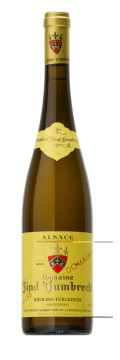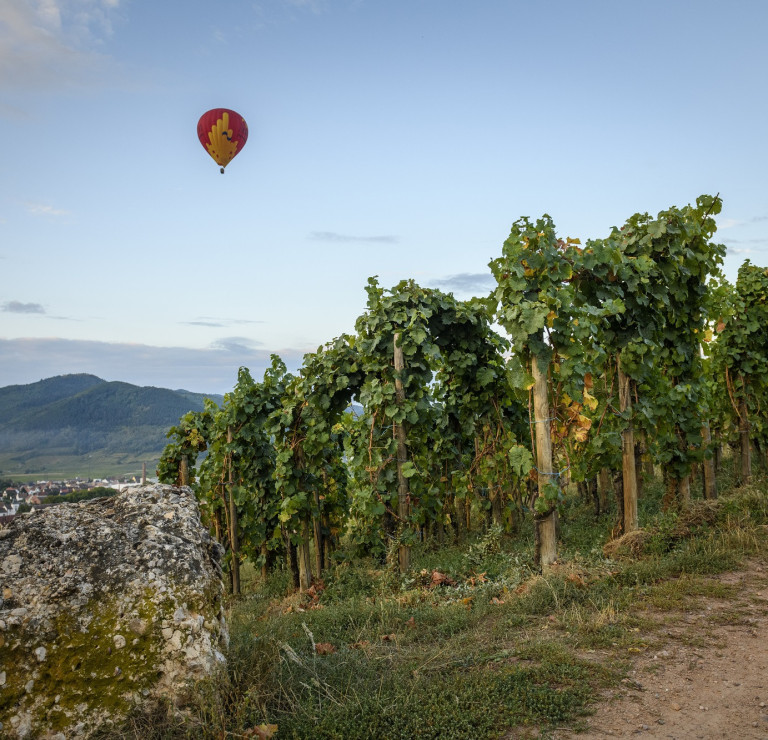
Technical presentation
| Bottling : | February 2010 |
|---|---|
| Acquired alcohol : | 12.8 ° |
| Residual sugar : | 19.0 g/l |
| Total acidity : | 6.6 g/l H2SO4 |
| pH : | 2.9 |
| Yield : | 45 hl/ha |
| Average age of vines : | 25 years |
| Grape variety : | Riesling |
| Terroir : | Grand Cru Brand |
| Sweetness index : | 2 |
| Soil : | Granite |
Description of the wine Riesling Turckheim Lot 14T 2008
Two batches of Riesling Turckheim! They should have been mixed together, but two different casks fermented very differently. This very small cask (only 100cs made) fermented slightly quicker and kept a very high acidity because, surprisingly, it didn’t go through malo-lactic fermentation. The grapes originate from our warm granitic Brand vineyard, and most vintages end up in our Brand wine. I am not sure to know exactly why we didn’t include it in our Brand wine. The most plausible is that I was so impressed by the oldest vines in the Brand, that I didn’t want to blend them together. The oldest vines also had significant botrytis, while these grapes were harvested very healthy.

Tasting notes
02/2010 : Not doubt on the nose about the origin of the grapes: very fruity and aromatic, showing early intense aromatics that can only come from granitic soils. The palate is intense, but the sweetness, that looks important, is in fact very well hidden behind the huge acidity. The finish is very crisp and lively.

The Brand Grand Cru of Turckheim
In the Brand, this variety acquires finesse and elegance (floral and fruit aromas) without ever becoming coarse or too heavy. The Brand always surprises by the precocity of its wines, but whilst expressive young they also have a great ability to age. The nature of this terroir makes it easy to obtain an optimal ripeness whilst retaining a fine acidity